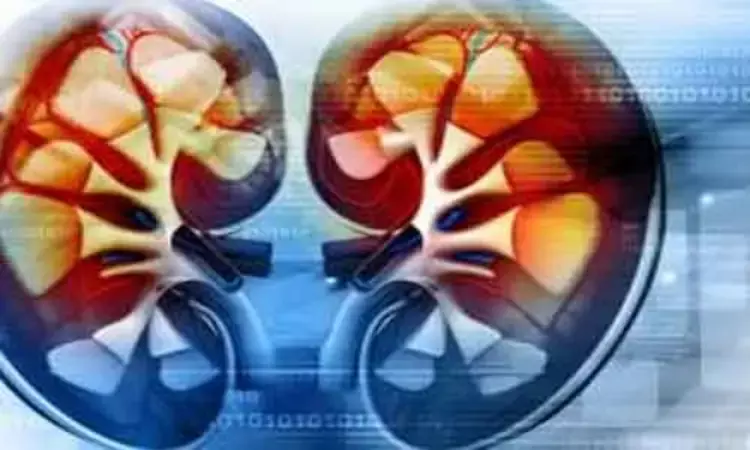- Home
- Medical news & Guidelines
- Anesthesiology
- Cardiology and CTVS
- Critical Care
- Dentistry
- Dermatology
- Diabetes and Endocrinology
- ENT
- Gastroenterology
- Medicine
- Nephrology
- Neurology
- Obstretics-Gynaecology
- Oncology
- Ophthalmology
- Orthopaedics
- Pediatrics-Neonatology
- Psychiatry
- Pulmonology
- Radiology
- Surgery
- Urology
- Laboratory Medicine
- Diet
- Nursing
- Paramedical
- Physiotherapy
- Health news
- Fact Check
- Bone Health Fact Check
- Brain Health Fact Check
- Cancer Related Fact Check
- Child Care Fact Check
- Dental and oral health fact check
- Diabetes and metabolic health fact check
- Diet and Nutrition Fact Check
- Eye and ENT Care Fact Check
- Fitness fact check
- Gut health fact check
- Heart health fact check
- Kidney health fact check
- Medical education fact check
- Men's health fact check
- Respiratory fact check
- Skin and hair care fact check
- Vaccine and Immunization fact check
- Women's health fact check
- AYUSH
- State News
- Andaman and Nicobar Islands
- Andhra Pradesh
- Arunachal Pradesh
- Assam
- Bihar
- Chandigarh
- Chattisgarh
- Dadra and Nagar Haveli
- Daman and Diu
- Delhi
- Goa
- Gujarat
- Haryana
- Himachal Pradesh
- Jammu & Kashmir
- Jharkhand
- Karnataka
- Kerala
- Ladakh
- Lakshadweep
- Madhya Pradesh
- Maharashtra
- Manipur
- Meghalaya
- Mizoram
- Nagaland
- Odisha
- Puducherry
- Punjab
- Rajasthan
- Sikkim
- Tamil Nadu
- Telangana
- Tripura
- Uttar Pradesh
- Uttrakhand
- West Bengal
- Medical Education
- Industry
AI can successfully predict ESRD in diabetes patients, finds study

Netherlands: A machine-learning model can help in the successful prediction of end‐stage renal disease (ESRD) in patients with nephropathy and type 2 diabetes, suggests a recent study in the journal Diabetes, Obesity and Metabolism.
The prediction of long‐term renal risk in type 2 diabetes patients holds importance in clinical trials and clinical practice. Sunil Belur Nagaraj, University Medical Center Groningen, Groningen, The Netherlands, and colleagues hypothesized that machine learning models can accurately predict end‐stage renal disease by using multiple baseline demographic and clinical characteristics.
The study included a total of 11 789 patients (with type 2 diabetes and nephropathy) from three clinical trials: RENAAL (N = 1513), IDNT (N = 1715), and ALTITUDE (N = 8561). Eighteen baseline demographic and clinical characteristics were used as predictors to train machine learning models to predict ESRD (doubling of serum creatinine and/or end‐stage renal disease).
The area under the receiver operator curve (AUC) was used to assess the prediction performance of models and compared against traditional Cox proportional hazard regression and kidney failure risk equation models.
Key findings of the study include:
- The feed forward neural network model predicted ESRD with an AUC of 0.82, 0.81, and 0.84 in RENAAL, IDNT and ALTITUDE, respectively.
- The feed forward neural network model selected UACR, serum albumin, uric acid and serum creatinine as important predictors and obtained the state‐of‐the‐art performance to predict the long‐term ESRD.
"Nonlinear machine learning models can be used to predict long term ESRD, despite large inter‐patient variability, in patients with type 2 diabetes and nephropathy using baseline demographic and clinical characteristics. The proposed method offers the potential to create accurate and multiple outcome predictions automated models to identify high‐risk patients who could benefit from therapy in clinical practice," concluded the authors.
The study, "Machine Learning based Early Prediction of End‐stage Renal Disease in Patients with Diabetic Kidney Disease using Clinical Trials Data," is published in the journal Diabetes, Obesity and Metabolism.
Dr Kamal Kant Kohli-MBBS, DTCD- a chest specialist with more than 30 years of practice and a flair for writing clinical articles, Dr Kamal Kant Kohli joined Medical Dialogues as a Chief Editor of Medical News. Besides writing articles, as an editor, he proofreads and verifies all the medical content published on Medical Dialogues including those coming from journals, studies,medical conferences,guidelines etc. Email: drkohli@medicaldialogues.in. Contact no. 011-43720751


